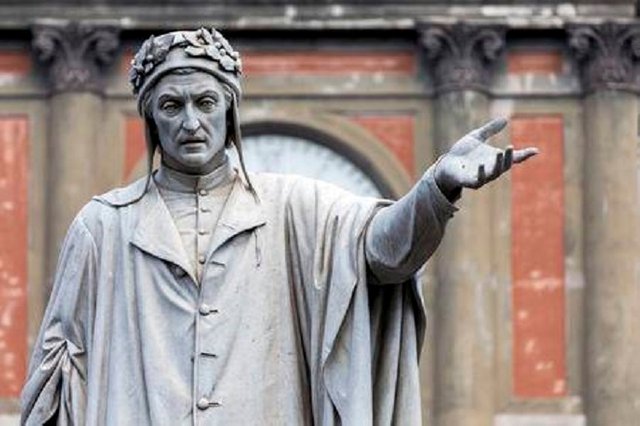Dante Alighieri and his not so famous works. "Feast"
Toma's from Aquino influence on Dante is undeniably enormous. Perhaps it was through Thomas Dante, who did not know ancient Greek but could have learned Latin translations of Aristotle's works, that he discovered for himself the thought universe of the ancient sage . If Dante is the first great poet (in the Middle Ages he is virtually excluded from the spiritual life and is not created), Vergilius is placed by Dante at its highest, and Aristotle is the highest placed among all ancient philosophers.
Feast. It is almost certain that Dante began writing this treatise in 1304, two years after he was forced to leave his native Florence. This assumption is based on the arrangement made by the author in Chapter V of the first part of the "Feast", with which he preaches his readers that he intends to write a separate piece of work in defense of thethe vulgar speech . Here it is to be recalled that Dante really began to write a treatise titled "About the Speech of the People" at the beginning of 1305. According to the original concept, the moral instruction treatise "Convivio" was supposed to consist of an introductory part and thirteen more parts, which were conceived as commentaries of thirteen "cantons of love and virtue". Dante manages to finish the fourth part by the end. Although incomplete, Dante's work, consisting of one introductory and three main parts, is now perceived as an important philosophical message that establishes the transition in the thinking of Italy's first complete intellectual of theological doctrines of the Middle Ages to the humanistic moral principles of the Renaissance . In the part of the" Feast "trek that arrives at us, a series of symbolic messages feasting on the" hungry for science "contains valuable information about the philosophical ideas and poetic principles to which Dante's Early Renaissance thinker is adhering. For most explorers of "Divine Comedy," this treatise is used as the primary reference work upon which they construct their interpretive strategy. .
"Feast" is born of the need that Dante has to protect his reputation with those he has known and present to those who have listened to him as a philosopher, a lover of wisdom, and as a leading impeccably godly life man. Italy's first Renaissance thinker is led by the desire to share his own unique philosophy of life and to prove his passionate love for Wisdom. He perceives wisdom as the knowledge that man acquires in his quest to know the truth. Dante says he has decided to arrange a feast not because he is from the circle of "the few privileged who sit by the table where the bread of the angels is served", that is, wisdom, but because, having been "freed from the vanity desires of the commonwealth, he has found himself at the feet of those who have settled around the table." Thus, the writer of the Feast is engaged in collecting "what falls out of this table" and tries his sweet taste by not forgetting those who are languishing in the misery of life and are eternally hungry because they are completely obsessed with their "civic and family responsibilities ". Guided by his natural sense, he begins to write inspired by the desire to help all "princes, barons, knights and other distinguished men and women who are part of the people and, as they have other care, have no time to deal with literature . Dante acknowledges that after the death of Beatrice he has courted several ladies, including the "kind lady" , who is committed to comforting him. Readers recognize it as an allegorical personification of Philosophy. in this way the poet returns to the years when he has devoted himself to philosophical reflections and lyrical confessions. He confessed that a few years later he was called to return to the spiritual commitments imposed on every believer in the Catholic Church. Dante says he was guided by Beatrice's pious guidance from the afterlife to turn back to God and follow his wise instructions. Affected by Heaven's inspiring inspiration, the poet experiences a sort of rebellion to the faith that is inspired by the one Beloved One who is invariably present in his soul. Beatrice is constantly possessed by the feverish impatience to help save his spirit. In fact, her beloved has devoted herself to this salvation right from the moment her soul has moved to the afterlife - a moment that has been described with an exquisite poetic word in New Life.

@godflesh ... 💐 Actually the stories of old books help us teach today's digital society. The book is one of them This is an extraordinary , @godflesh Sir, one of your stories is extraordinary, if we did not come to steemit then maybe you could not read your beautiful story, we could Everyone will wait a lot more beautiful text in the future, you will give us a gift
You have recieved a free upvote from minnowpond, Send 0.1 -> 10 SBD with your post url as the memo to recieve an upvote from up to 100 accounts!